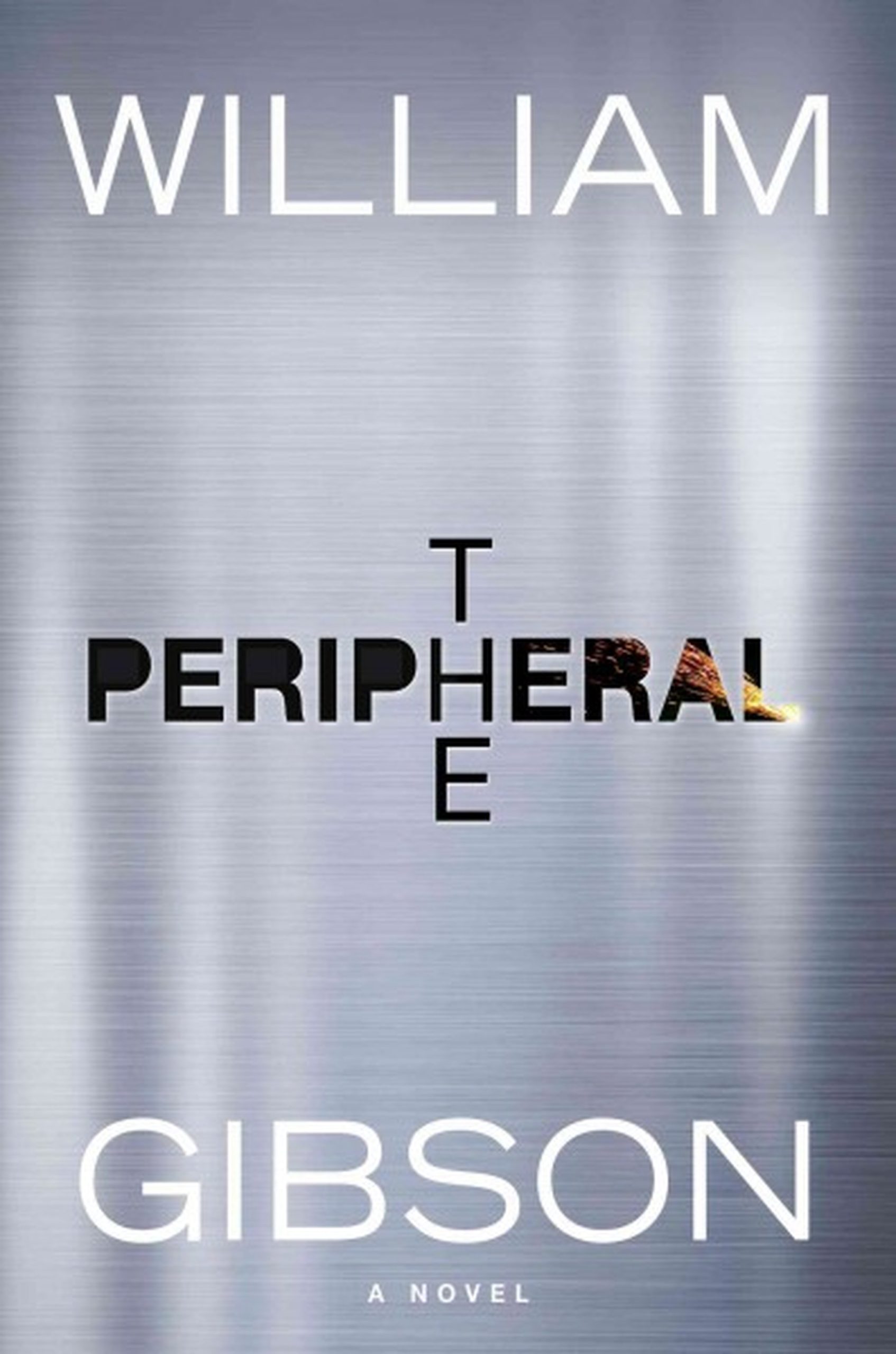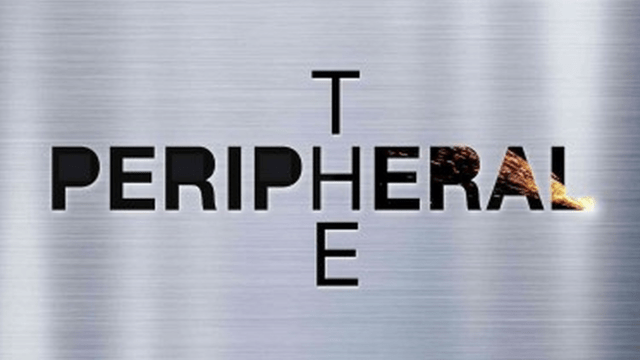Human beings are the most important ingredients in game design. Without the participation and attention of an actual person, games are just basically systems waiting for input. In the latest novel by legendary science-fiction writer William Gibson, humans aren’t just controlling disembodied avatars in made-up worlds. They’re also controlling each other in the worst possible ways.
The Peripheral starts off with video games, slightly mutated from their current 2014 form. Phones connect to both global game networks and giant displays and playing games for and against other people is a way to earn a living. That’s what Flynne Fisher is doing at the novel’s opening, subbing a few QA shifts for her brother during what’s supposed to be a beta test of an upcoming game. When Flynne sees something go horribly wrong in that other reality, she suddenly becomes a target for people with seemingly endless amounts of money and influence.
Mild spoilers follow for the plot of The Peripheral. If you haven’t read the book yet, you might want to stop reading here.
Part of The Peripheral is set in a sleek, sterile shiny-future, where disease hardly exists anymore and extinct animals get revived as pets for the super-rich. The other part of it happens in the negative space of the sorta-utopia, along the back roads of rural America, where giant corporations print everything from food to drugs and good ol’ boys can keep their land safe with a personal fleet of drones.
Gibson’s latest novel is suffused with an all-too-familiar sinking feeling — that technological advances are letting sociopolitical elites flatten and squeeze the lives of those with less than them. America’s been third-worlded in Gibson’s imagined future and, in a landscape where cheap 3D printing is ubiquitous, you get the sense that human bodies and brains are slaved to menial drudgeries with ever tighter bonds. It’s not quite The Matrix, where machines are running things, but human flesh is more explicitly a machine part for those with enough sway to make it so. Even when you can exercise free will to make your own life better, it’s against an incredibly bleak backdrop.
Think a future where you can earn money playing video games sounds like a dream come true? Not in The Peripheral. A flashback section of the book — where Flynne remembers a three-day marathon of cat-and-mouse gameplay in a WWII shooter against a well-off, sadistic jerk — shows just how important illegal video game gambling is in The Peripheral‘s near future:
“Players like Flynne were paid on the basis of kills, and on how long they could survive in a given campaign. She’d gotten to feeling that what the accountant most liked, about killing them, was that it really cost them. Not just that he was better at it than they were, but that it actually hurt them, after he did. People on her squad were feeding their children with what they earned, and maybe that was all they had, like she was paying Pharma Jon for her mother’s prescriptions. Now he’d gone and done it again, killed everyone on her squad, one after another, taking his time, enjoying it.”
Gibson drops readers smack dab into the deep end of The Peripheral‘s radically changed global landscape with very little exposition. There’s enough familiarity to grab a handhold onto, but you’re still puzzling things out as you go. I found myself treading water through the truncated slang talk and under-explained brand names of The Peripheral and when the first few shafts of clarity broke through the murk, I felt like my insight attribute leveled up by 1000 XP.

When I spoke to Gibson in a downtown New York City hotel two weeks ago, he said that the lack of explanation was a conscious decision to create a sense of future shock, of suddenly waking up in a society re-ordered by tech-driven changes without having seen any of it happen. “I marvel [at the assumption] that emergent technology is now — and has perhaps long been — the main change driver in our society,” Gibson said. “Assuming that, look at how technologies emerged. They are never legislated into emerging. This aspect of what humans do that must drive change increasingly has terrible possibilities to do us harm as well as good. That becomes more apparent as we go along. It’s just random-arse shit that somebody comes up with an idea for. And often it’s not the intended consequence that drives the change from a given emergent technology.”
“None of the people that brought that technology into the world ever thought that would happen, because it’s about what happens when people get a hold of it,” Gibson continued. “Then it becomes fantastically complex. The guys who figured out phone pager technology didn’t know that they would rewrite the geography of urban crime, which they directly did. The people who thought up the internal combustion engine [were thinking], ‘This will be good for us!’”
When I interjected that one major consequence is that we’re screwed climate-wise as a result of the combustion engine, Gibson elaborated even more. “Yeah, and that [consequence] is so complex and so systemic that we wouldn’t have been able to explain to the inventors of internal combustion what it was,” he said. “There would be too many alien concepts. If we got out of the time machine and said, ‘Wow! Fritz. Don’t do that. Don’t turn that final screw. Tear that baby down. We’re from the future. You’ve gotta trust us.’ It just wouldn’t work. We wouldn’t be able to explain it to them.”
Talking to Gibson in person, you’d never think that the amiable, lanky man who stills speaks with a hint of a Southern accent is the mind behind some of the most ruthless science-fiction imaginings of the modern era. It might be oversharing a bit but I was as nervous as I’ve ever been before interviewing the man who wrote Neuromancer, especially after finishing his latest cognitively challenging book. Would he think I was a just a dumb random dude trying to imprint his vested interest in video games onto an ambitious work of prose fiction? Thankfully he didn’t (at least as far as I could tell.)
“It occurred to me that she could have actually gotten into gaming and had her own version of PTSD, [having] acquired it in an online multiplayer game. That’s just one of those jumps in imagination you make when you write this sort of thing.”
It was the gaming angle that hooked me into The Peripheral at first. Flynne’s brother Burton gets introduced as a veteran of a Marine Corps Haptic Recon program that’s left him with a cyborg form of shellshock. His muscles — and maybe his mind — glitch out from time to time. But Gibson told me that Flynne’s own time in a high-risk underground video game economy has left with her own set of psychological skills and consequences, too.
As things evolve in the plot, it turns out that the screened reality that Flynne’s been interacting with isn’t just a game and that the denizens of that world can affect her day-to-day existence. For example, as a down payment for her services, her cousin suddenly wins the lottery and becomes a multimillionaire. My reaction to that was to think, “Oh, it’s not really a game.” But the feedback loop of action and reaction is still kind of game-like, in a chilling way. I asked Gibson about why he decided to use video games as a fulcrum for one of The Peripheral‘s core conceits — the idea that future technology could let powerful organisations would use human lives in near-total secrecy.
“Well, I don’t have a very logical methodology in constructing these things” he began. “I just embrace randomness in large part. It emerged very early in the narrative that Flynne’s brother probably does have post traumatic stress disorder even though the VA doesn’t want to pay for it. He’s pretty hinky. So we had that. Then his relationship with Flynne, which is a brother/sister thing, seemed to have something to do with how his PTSD had affected how they deal with each other. She actually seemed to me, just as she was presenting to me as I wrote her, to have some of that going on, too. It occurred to me that she could have actually gotten into gaming and had her own version of PTSD, [having] acquired it in an online multiplayer game. That’s just one of those jumps in imagination you make when you write this sort of thing.”
“Then I had to figure out what kind of game would have done that to her, and that actually gave me the economy of the kind of gaming she’s been involved in, which as far as we know might be half the economy of this small town. The other half being cooking meth or some equivalent. The other poor people play for pay. They’re paid to play. I was assuming whatever interface they’re using — which is never really described — and the evolution of the games could cause you some very serious stress indeed, particularly if your children’s dinner depended on it.”
The Peripheral‘s internal logic feels very opaque at first but the book’s first-class world-building managed to keep me locked in. With gaming woven so intently into the fabric, it’s seemingly tailor-made to become some sort of interactive experience. But, at the same time, it’s such a bleak, nihilistic vision that I don’t know why I would want to play through it. When I put that assertion to Gibson, he replied with a question for me.
“Well, is it bleaker than Fallout?” he asked. “I don’t game myself, but I look over my adult daughter’s shoulder. She’s a pretty keen gamer. I kind of go, ‘Whoa, that’s dark! They’re doing what? Man, that is really dark.’ This is dark, too, but in a different sort of way.” I asked Gibson about what sort of genre treatment he could see a potential Peripheral game adaptation. Would it be an action-shooter? Or something more strategic like Civilisation, where you’re trying to influence one of the book’s realities from across the gap that divides them?
The Vancouver-based writer had to beg off. “Gosh, I don’t know,” Gibson demurred. “What I would hope for would be that someone would turn up with an idea for an adaptation that that would strike everyone as both terrifically novel and really apt for the material. I don’t know enough about gaming to imagine what that would be but that would be my dream state of just being the guy who wrote the book.” Gibson’s had encounters with people wanting to adapt his work to games before. “Being asked about it reminds me of one of my first business experiences with gaming, which was having a couple of board game guys turn up and talk about Neuromancer. They started asking, ‘Where do they grow the food for the people in the Sprawl?’ I said, ‘I don’t know.’ And they looked at one another like, ‘Oh God! What have we got here? This guy’s got no basis for this nonsensical world.’
The reason Gibson didn’t have an answer for that is because his mind’s eye focuses more on extrapolation than logistics. The Peripheral is about the haves and the have-nots of one possible future, where seemingly small changes have huge ripple effects. “An old guy once told me his perception of the week broadcast television came to Manhattan,” Gibson said by way of explanation. “He said Manhattan has never been the same since the night when broadcast television was turned on, because that was the night people quit sitting on their stoops. He said after that it was a different city. It might be true. These huge things happened and we don’t even notice because we’re up watching Art Linkletter.”

Comments